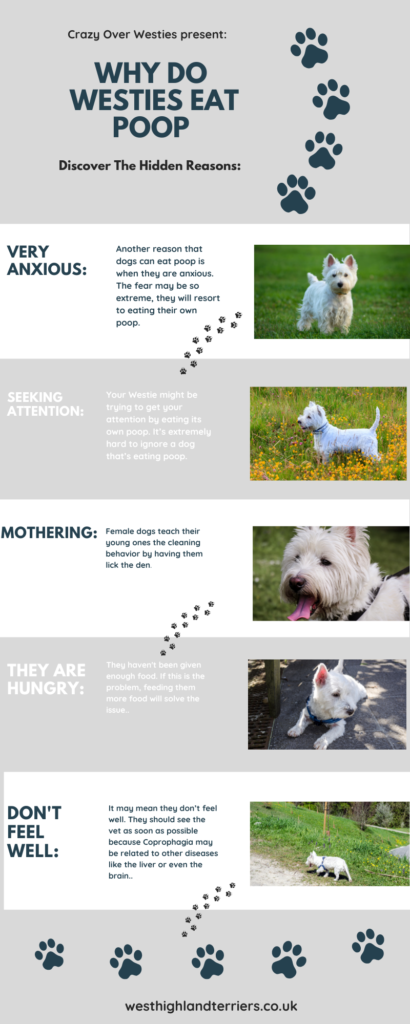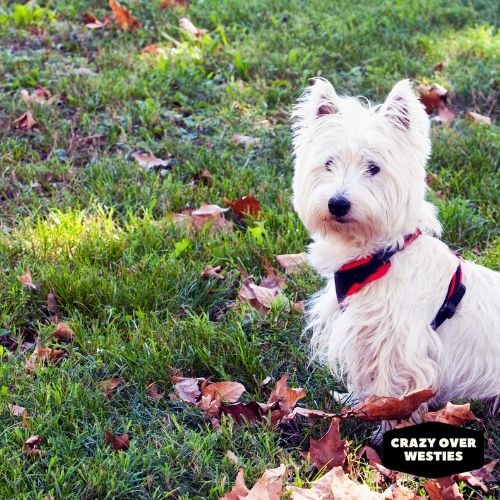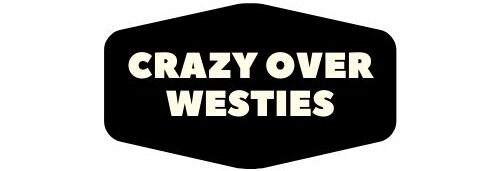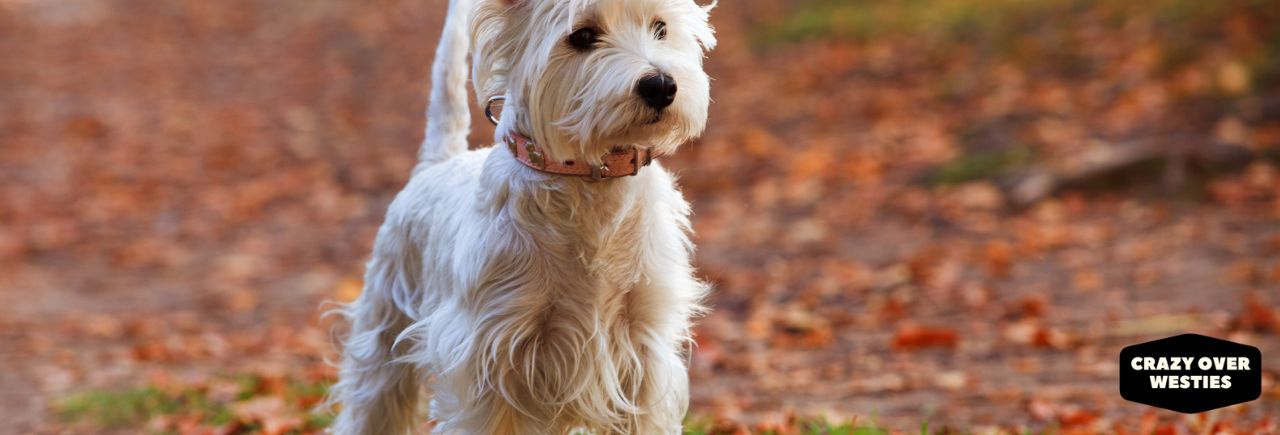Why do westies eat poop? The reasons behind this behavior are not fully understood, but it is a common one in dogs. It can be called coprophagia and may reflect some level of digestive upset.
However, vets have also speculated that it could be related to an animal’s instinctive need for nutrients or a behavioral issue.
This content takes around 4 minutes to read, but if you are in a hurry, we have also included a table of contents plus an infographic below, so you can see quickly what the content is.
Table of Contents
Why Do Westies Eat Poop Infographic:

Click Here For Full-Size Image For Your Website
——————-
It’s important to remember that certain pets need special diets. Westie dogs are a good example of these since some can be very picky about what they eat.
Other dogs will be happy with any scraps they can get while others need to have their meals cooked in a specific way.
Here are the most common reasons why Westies eat poo.
——————-
They Are Scared Or Anxious:
Another reason that Westies eat poop is when they are anxious. This fear may be so extreme, that they will resort to eating their own poop. You, therefore, need to try and identify the cause of the problem before it gets worse.
To Get YOUR Attention:
Your dog might be trying to get your attention by eating its own poop. If this results in a reaction that is desired, the dog may continue with this behavior. It’s extremely hard to ignore a dog that’s eating poop.
———————
Mothering:
Female dogs teach their young ones the cleaning behavior by having them lick the den. Male dogs often don’t do this because they are not as important during pup rearing. They concentrate on other things such as hunting.
——————-
Your Westie Is Hungry:
There are many reasons why your dog may be eating pet feces. One is that they haven’t been given enough food to eat. If this is the problem, feeding them more food will solve the issue.
It’s also an indication that you should have a chat with your vet about the kind and amount of food you should be giving them.
—————–
They Don’t Feel well:

If your pet suddenly starts eating poop, it may mean that they don’t feel well. They should see the vet as soon as possible because Coprophagia may be related to other diseases like the liver or even the brain.
Coprophagia is seen in a range of animals and is labeled as a behavioral problem.
——————–
Not Getting Enough Nutrients:
When dogs don’t get the nutrients they need at home, they’ll start looking elsewhere. This is why it’s important to provide them with a balanced diet that includes many different healthy options.
Dogs eating their own stool can be a common issue that needs to be addressed.
—————–
Medical Reasons For Eating Poop:
These can vary from enzyme deficiency, parasites or diabetes, or thyroid problems. If a dog has an enzyme deficiency, it could have trouble digesting the sugar in its poop. This can lead to gas problems which become more noticeable than usual.
—————–
How You can stop Your Westie Eating Poop:
To avoid boredom, which is one of the reasons, make sure your dog has fresh air and can run around freely. Additional activities include playing catch with you or other dogs and learning new tricks. The possibilities are endless!
If you have other animals in the house, make sure you pick up any feces immediately. This will help reduce the chances of them eating other feces.
Food is an important part of a dog’s life and an improper diet can have negative repercussions on the pet. Try to ensure your dog receives all the nutrients he needs.
——————-
FAQS:
——————-
Conclusion:
Sometimes, figuring out why your pet is eating poop can be a little tricky. But with some time and patience, you’ll start to notice patterns in their behavior. Remember that this is perfectly normal behavior for pets!
In a recent study, it was found that 24% of the dogs were seen eating poo at least once, whereas around 16% of dogs were found to be serious stool eaters.
We do hope that the information above has answered your important questions on why does your Westie eats their poop?
————————
Disclaimer: All material on this website is provided for your information only. It may not be construed as medical advice. No action or inaction should be taken based solely on the contents of this information. Instead, readers should consult appropriate health professionals or veterinarians on any matter relating to their pet’s health and well-being. The publisher is not responsible for errors or omissions.

